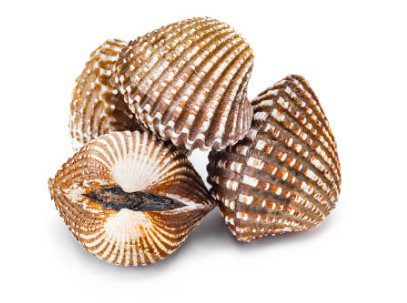

Shellfish, such as shrimp, crab, lobster, crayfish, scallops, clams, oysters, and mussels, can provide nutritional benefits to dogs and should be fed in moderation. While shellfish can offer lean proteins and vitamins such as vitamin B12, there is a risk of potential health problems associated with shellfish consumption such as bacteria, parasites, toxins, and allergic reactions.
Shellfish is a lean source of protein, and is loaded with vitamins and minerals beneficial to a dog’s health. It is packed with good fats like omega-3 fatty acids that are great for supporting a dog’s heart and brain health. Harnessing its vitamin B12 content helps keep a dog’s brain and nervous system functioning properly.
Raw shellfish contains harmful bacteria, parasites, and toxins that can make a dog ill with symptoms such as vomiting and diarrhoea. It can also cause paralytic shellfish poisoning (PSP) in dogs. Bivalve shellfish such as clams, mussels, and oysters have to be duly noted as they may contain higher concentrations of toxins. Some dogs may also be allergic to shellfish.
Shellfish should be thoroughly cleaned and cooked by boiling, grilling, or steaming. The shells, veins, tails, and sharp parts should be removed before feeding to dogs. Shellfish can be given to dogs occasionally and in moderation.
Shellfish is a lean and nutritious source of proteins and minerals, including vitamin B12 and omega-3 fatty acids, whichmakes it beneficial for a dog's health. Commonly, shellfish are shrimp, crab, lobster, crayfish, scallops, clams, oysters, and mussels. Mostly found on the coasts and in oceans, shellfish is collected worldwide and goes by many different names. While providing excellent nutrition to a dog, consumption of shellfish may also present a variety of health risks. Bacterial parasites, toxins, and allergic reactions are some potential problems that can arise from eating shellfish. For this reason, when serving shellfish to your pup, ensure it is both thoroughly cooked and cleansed of veins, shells, and tails before consumption. Shellfish should be given to your furry friend occasionally, and in moderation.
Alternatives proteins for dogs include lean meats like chicken and lean red meats such as lamb and beef. Other options include heart, giblets, and some cottage cheese. When in doubt, read the label on pet food and treats to ensure that it contains the necessary nutrients for a dog's needs.
Many pet owners wonder if shellfish is appropriate for their pup's diet. If your dog is in good health and isn't allergic, small amounts of cleaned and cooked shellfish can indeed provide some great nutrition. However, as with any other food item, speak to your vet to get a better understanding of your pet's specific needs.
Finally, if your pup has tried shellfish, we would love to hear your story. Has it been a success? Does your dog have any allergic reactions? Let us know in the comments!
No matter what your pup's diet looks like, we hope that you and your furry friend can enjoy many healthy and delicious meals together!